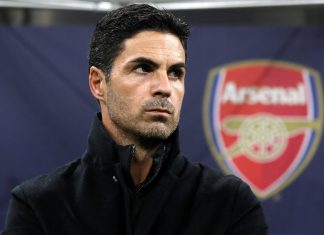The Bundesliga champions Bayern Munich started things off, crushing Barcelona 4-0, before Borussia Dortmund did for Real Madrid 4-1.
It was incredible the way the two German sides dismantled their Spanish rivals with such ease in truth. These were meant to be close games. They were meant to be between the best four sides in Europe. Instead they pitted the best two sides in Europe against the next best two teams. The distinction there is important.
What was most striking about the way Bayern and Dortmund won their games was the sheer speed that they did it. Bayern in particular tore into Barcelona with such pace that the Catalans simply could not keep up. Physicality had something to do with it, height another, but the key thing was the speed of their movement. Bayern instantly moved the ball forward to the most advanced player in space whenever they had the ball and Barcelona were unable to cope.
Dortmund similarly tore into Real Madrid with such venom that Jose Mourinho’s side were utterly overwhelmed, forced into a succession of long balls early on in the game. Dortmund’s pressing was intense and their passing quick and accurate. It was beguiling to watch them. They did not quite play with the same accuracy as Barcelona at their prime, with many of their fast short passes going astray, but in some respects it was an even better display of total football than Barcelona have accomplished. Total football is fundamentally about moving the ball quickly when in possession to create space and then when out of possession to squeeze space. Fundamental to that is rotating positions between every player, so that the right back at one moment may be the striker the next, and the midfielder at any moment could suddenly become a defender.
Dortmund’s play was typical of total football. Their rapid passing may be less accurate than Barcelona’s, but it was so rapid that Real Madrid could not keep up with it and it forced them into error after error. It created space that they exploited ruthlessly. It was epitomised best by Robert Lewandowski’s third goal. A truly sumptuous strike, Lewandowski controlled the ball with his left foot, instantly realised the space was behind him, pulled the ball back with a sublime touch and then rifled it into the net as soon as he’d found himself a yard of space. It was sublime, truly breathtaking and a phenomenal strike. It was a goal worthy of total football.
Bayern too showed elements of total football. Again, their passing was less accurate than Barcelona’s, but the key elements of total football were executed best by the Bavarian side. When without the ball they squeezed the pitch and made it small, and as soon as they got it they used fast passing and width to stretch the pitch out wide. Of course, Jupp Heynckes played in the Borussia Moenchengladbach team of the 1970s which based so much of its success on the principle of total football so this should be no surprise.
And it is fitting of course that Pep Guardiola should become Bayern’s next coach. A disciple of total football as he was under Johan Cruyff 20 years ago, the former Barcelona coach knows how to implement it better than anyone aside from the great man Cruyff himself.
That is a frightening prospect. The speed of these two German giants more than anything overwhelmed their Spanish rivals. It was frightening and beguiling, and incredibly exciting at the same time. Frankly, Dortmund were more thrilling than even Bayern were. They would be fitting champions.







